7 Healing Oils Found in the Bible
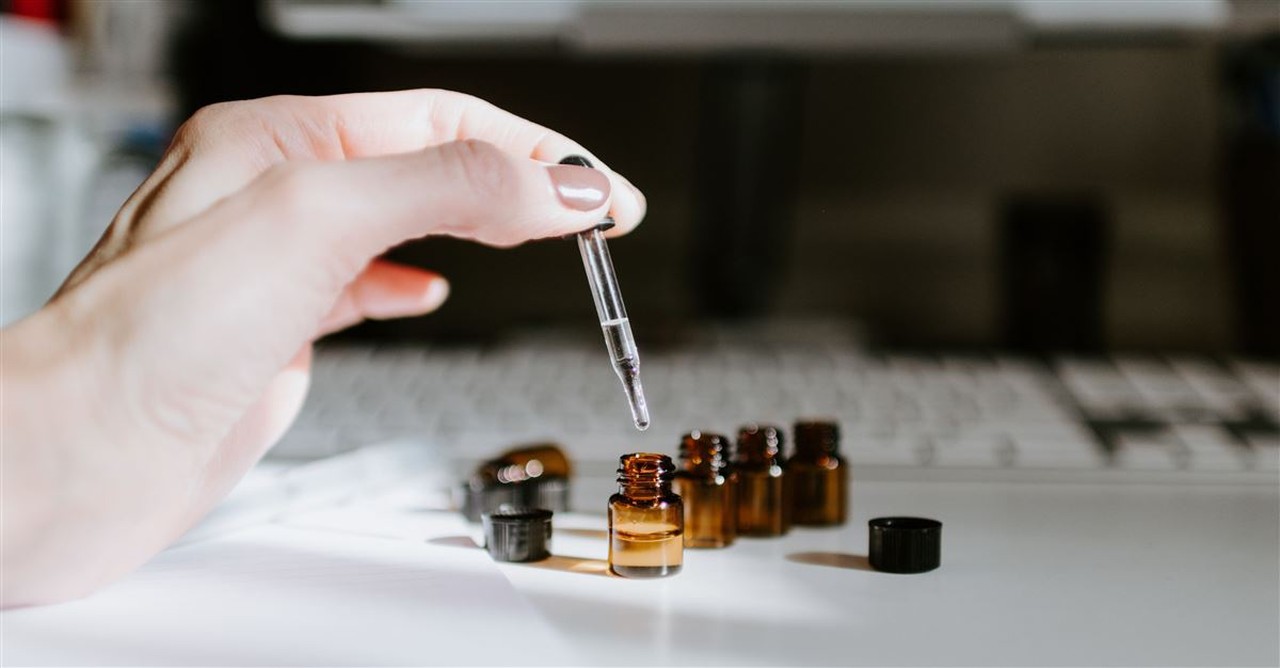
My life changed forever when I first discovered essential oils a few years ago. Suffering with chronic issues since early adulthood, I use essential oils to ease tension headaches, reduce stress, and help me sleep.
But did you know essential oils were used during Bible times as well?
Here are seven popular (and useful) essential oils in the Bible:
Photo Credit: Unsplash/KellySikkema1. Cedarwood

1. Cedarwood
SLIDE 1 OF 7
Egyptians used cedarwood to embalm the dead as a means of preservation for the afterlife. It is also used as a traditional medicine in Tibet. Derived from the cedars of Lebanon, much like its balsam fir neighbor, cedarwood is known for its healing and cleansing properties.
Cedarwood in Scripture:
“The priest shall order that two live clean birds and some cedar wood, scarlet yarn and hyssop be brought for the person to be cleansed” (Leviticus 14:4).
“The righteous shall flourish like a palm tree, He shall grow like a cedar in Lebanon” (Psalm 92:12).
Uses for cedarwood:
In the Bible, cedarwood is noted as part of the ritual cleansing of lepers. However, you may be surprised to learn that cedarwood oil is used today to help such ailments as ADHD and to combat hair loss.
Practical application:
Diffuse cedarwood oil in an aromatic diffuser for help with sleeping. Due to cedarwood’s strong smell, you will want to combine the oil with some lesser aromatic oils to soften the odor.
Photo credit: Unsplash/Jeremy Bishop
2. Cinnamon

2. Cinnamon
SLIDE 2 OF 7
Although cinnamon is most commonly used as a spice in food, the Bible notes cinnamon is both an anointing oil and an attractive scent. Cinnamon is related to a bark called cassia, a fragrant, aromatic bark ground into powder.
Cinnamon in Scripture:
All your robes are fragrant with myrrh and aloes and cassia; from palaces adorned with ivory the music of the strings makes you glad” (Psalm 45:8).
Then the Lord said to Moses, ‘Take the following fine spices: 500 shekels of liquid myrrh, half as much (that is, 250 shekels) of fragrant cinnamon, 250 shekels of fragrant calamus, 500 shekels of cassia—all according to the sanctuary shekel—and a hin of olive oil. Make these into a sacred anointing oil, a fragrant blend, the work of a perfumer. It will be the sacred anointing oil. Then use it to anoint the tent of meeting, the ark of the covenant law, the table and all its articles, the lampstand and its accessories, the altar of incense, the altar of burnt offering and all its utensils, and the basin with its stand’” (Exodus 30:22-28).
Uses for cinnamon:
Not only is cinnamon used in sacred anointing oil, and as a perfume or spice, cinnamon is known for being an aid for illnesses such as stomach ulcers, and as an antiparasitic (worms.)
Practical application:
Apply 2-4 drops of the oil directly on the stomach area to help with digestive issues, add to toothpaste, or dissolve in hot tea to soothe your throat.
Photo credit: Unsplash/Mae Mu
3. Frankincense
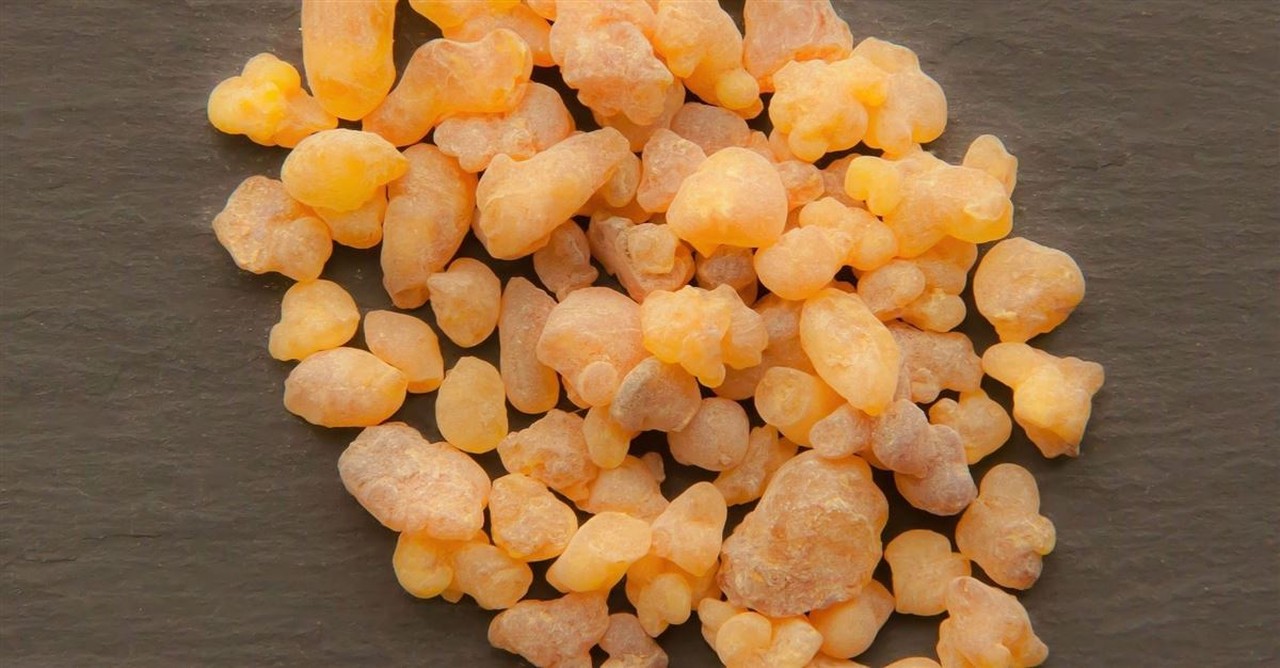
3. Frankincense
SLIDE 3 OF 7
Christians know frankincense best as one of the gifts given to baby Jesus as part of the Christmas story, but frankincense is currently also thought to promote skin cellular health and build a healthy immune system.
Frankincense in Scripture:
"Then the Lord said to Moses, 'Take fragrant spices—gum resin, onycha and galbanum—and pure frankincense, all in equal amounts and make a fragrant blend of incense, the work of a perfumer. It is to be salted and pure and sacred. Grind some of it to powder and place it in front of the ark of the covenant law in the tent of meeting, where I will meet with you. It shall be most holy to you'” (Exodus 30:34-36).
"And when they had opened their treasures, they presented gifts to Him: gold, frankincense, and myrrh” (Matthew 2:11).
Uses for frankincense:
The Bible mentions frankincense is used as part of a holy ritual as an incense. People claimed frankincense had more worth than gold. It was used as a natural healer, and an aid to heal almost any disease that plagued people during that time. Today, frankincense is also used to boost immunity, shrink tumors, and decrease inflammation.
Practical application:
Place 2-4 drops of oil directly onto the part of the body in need of healing.
Photo credit: Pixabay/xbqs42
4. Hyssop
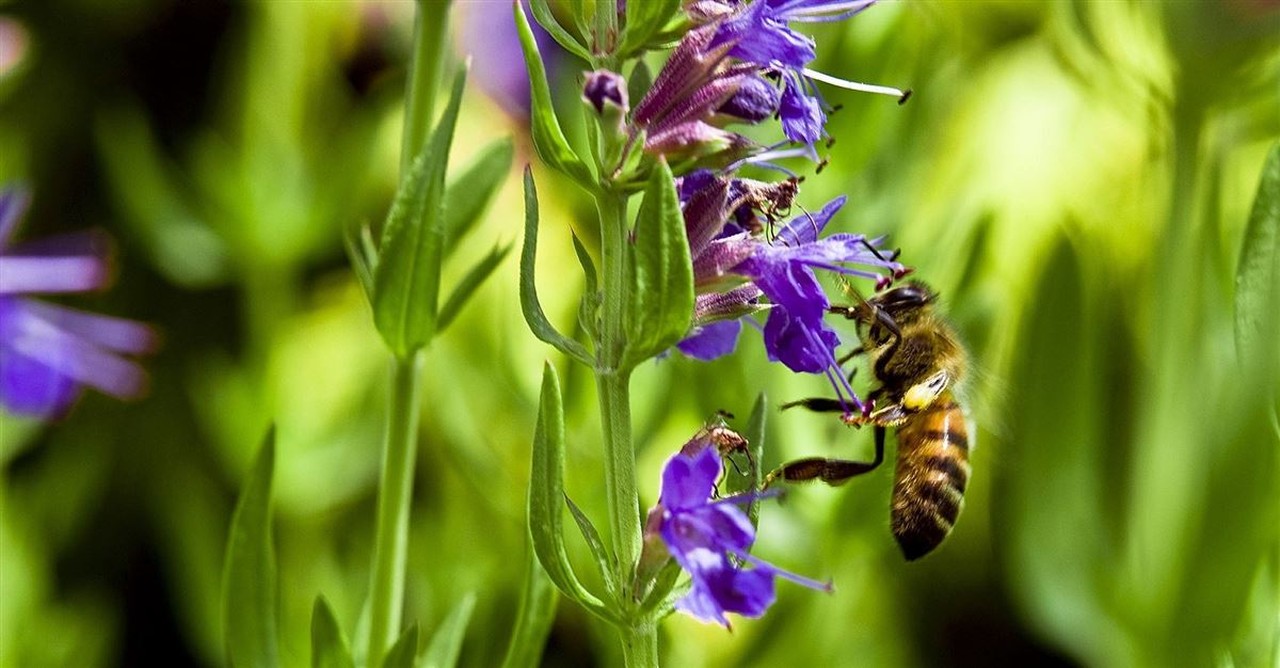
4. Hyssop
SLIDE 4 OF 7
In Biblical times, hyssop grew in Egypt, in the desert of Sinai, and in Palestine.Today, it is derived from the plant Hyssopis Officinalis currently found here in the United States (Utah) as well as France and Hungary. Hyssop was used in ceremonial offerings and cleanings, and one of the ingredients in the sponge used to soak up sour wine given to Jesus on the cross. It represents the freedom and forgiveness of the Gospel; pointing to the atoning death of Jesus.
Hyssop in Scripture:
"Take a bunch of hyssop, dip it into the blood in the basin and put some of the blood on the top and on both sides of the doorframe. None of you shall go out of the door of your house until morning” (Exodus 12:22).
"Purge me with hyssop, and I shall be clean; Wash me, and I shall be whiter than snow” (Psalm 51:7).
Uses for hyssop:
While the Bible references Hyssop as used for purification purposes, Hyssop is also used to stimulate creativity and also helps open up the circulatory system.
Practical application:
Create a balm by adding hyssop essential oil to shea butter and rub all over your feet for overall health and well-being.
Photo credit: Pixabay/lucianaeris
5. Balsam Fir

5. Balsam Fir
SLIDE 5 OF 7
Derived from fir trees, fir oils are known for their highly medicinal properties. Today, the fir is beloved as the most popular type of Christmas tree.
Fir in Scripture:
“The glory of Lebanon will come to you, the juniper, the fir and the cypress together, to adorn my sanctuary; and I will glorify the place for my feet” (Isaiah 60:13).
“Then David and all the house of Israel played music before the Lord on all kinds of instruments of fir wood, on harps, on stringed instruments, on tambourines, on sistrums, and on cymbals” (2 Samuel 6:5).
Uses for balsam fir:
Biblically, fir was the wood used to make musical instruments. Today, the oil is used as an anticoagulant and to heal ailments such as throat and sinus infections, as well as urinary tract infections and arthritis.
Practical application:
Combine with other oils such as myrrh and frankincense to create a pleasant-smelling diffuser oil. Place in a small vial with a roller and place on temples and back of the neck.
Photo credit: Unsplash/Julio Ramirez
6. Myrrh
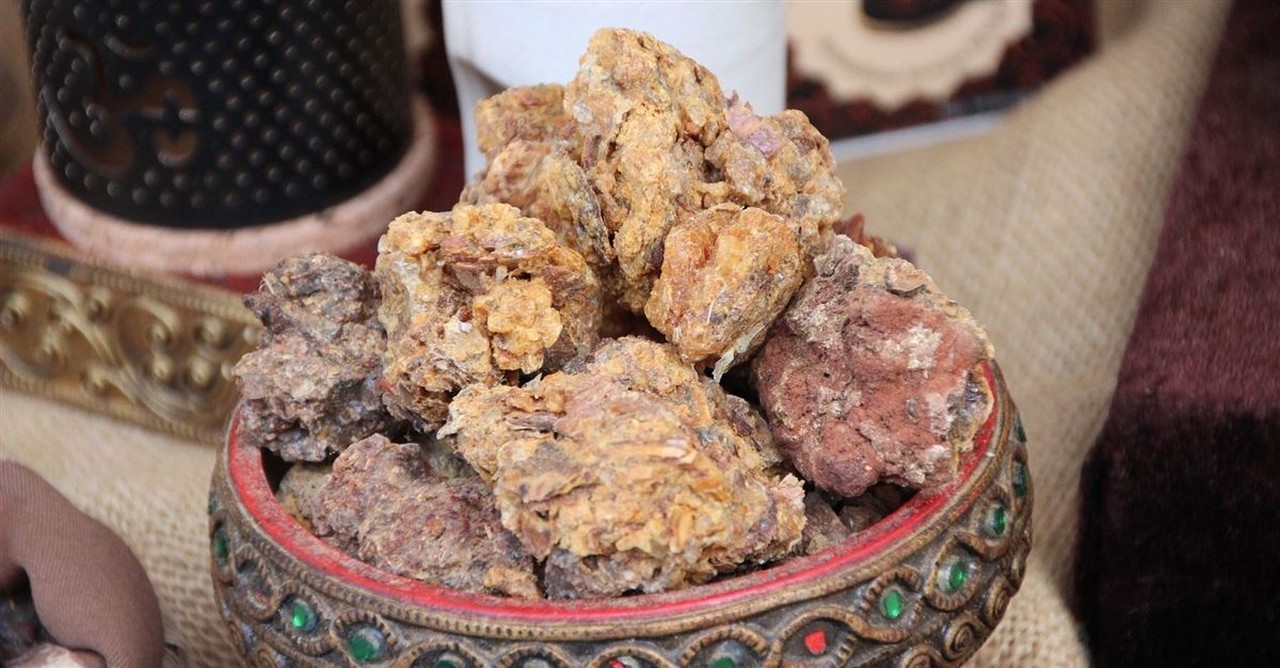
6. Myrrh
SLIDE 6 OF 7
Not only was myrrh used as a gift to the baby Jesus, myrrh is known as a highly valued and desired oil. It is listed in Dr. Wighard Strehlow’s book Medicine, which highlights early medicines compiled by Hildegard of Bingen (who lived from 1098-1179).
Myrrh in Scripture:
“Before a young woman’s turn came to go in to King Xerxes, she had to complete twelve months of beauty treatments prescribed for the women, six months with oil of myrrh and six with perfumes and cosmetics” (Esther 2:12).
“And they sat down to eat a meal. Then they lifted their eyes and looked, and there was a company of Ishmaelites, coming from Gilead with their camels, bearing spices, balm, and myrrh, on their way to carry them down to Egypt” (Genesis 37:25).
“On coming to the house, they saw the child with his mother Mary, and they bowed down and worshiped him. Then they opened their treasures and presented him with gifts of gold, frankincense and myrrh (Matthew 2:11).
Uses for myrrh:
The Bible mentions myrrh as a part of a daily regimen. Today, myrrh is used as an antibacterial agent. Myrrh is used to control diabetes, but also can be a powerful aid to cure various skin disorders such as eczema and chapped skin as well as cure fungal infections like candida and ringworm.
Practical application:
Create a lotion using beeswax and shea butter. Add 2-4 drops of the oil and mix well. Apply directly onto the skin irritation. Do this until the skin condition improves.
Photo credit: Pixabay/Leo_65
7. Myrtle
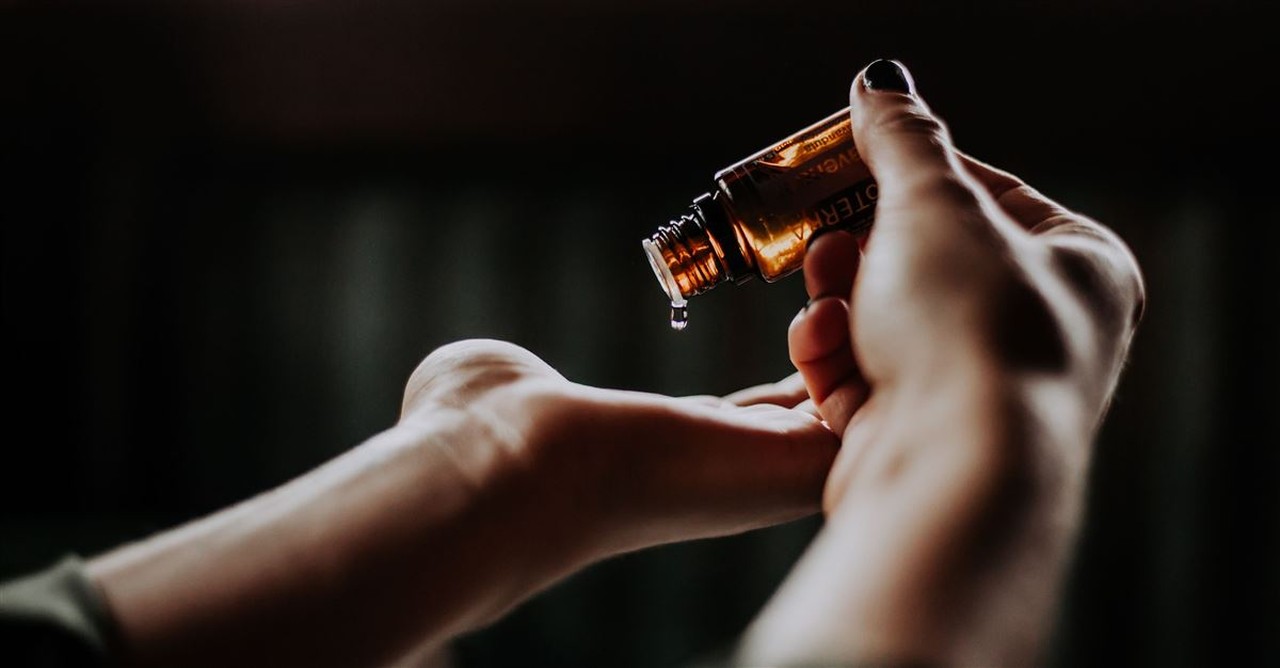
7. Myrtle
SLIDE 7 OF 7
Myrtle is a low-growing plant with flowers that produce an intense, lovely aroma. It originated in the Middle East and Mediterranean regions. At one time, myrtle was common throughout Palestine and Lebanon. Today, in Israel, most myrtle is grown intentionally for ornamental purposes; however some still grow wild in Upper Galilee and Golan.
Myrtle in Scripture:
“During the night I had a vision, and there before me was a man mounted on a red horse. He was standing among the myrtle trees in a ravine. Behind him were red, brown and white horses…Then the man standing among the myrtle trees explained, ‘They are the ones the Lord has sent to go throughout the earth’” (Zechariah 1:8).
“Go out to the mountain, and bring olive branches, branches of oil trees, myrtle branches, palm branches, and branches of leafy trees, to make booths, as it is written” (Nehemiah 8:15).
Uses for myrtle:
Despite its ability to be used as a perfume, God used the trees as a part of the prophet Zechariah’s vision and as a prophetic picture of God's promised blessings. Today, Myrtle is extracted from the leaves via steam distillation. Myrtle is best used to soothe the respiratory system and balance the thyroid, as well as a variety of other health benefits.
Practical application:
Use a carrier oil such as olive oil to create a roll-on containing myrtle. Rub the roll-on mixture directly on the bottom the neck to stimulate the thyroid gland.
Although essential oils can be an incredible asset to anyone looking to integrate more health into their daily routine, be careful to do your research and learn more about these and other oils.
If you'd like to incorporate any of these oils into your daily life, you may find this site interesting.
Disclaimer: This article is not to take the place of any physician’s advice. Please contact your physician before using any of these oils. This article does not endorse or promote any specific oil companies.
Photo credit: Unsplash/Christin Hume
Michelle S. Lazurek is a multi-genre award winning author, speaker, pastor's wife and mother. She is a regular contributor for ibelieve.com and crosswalk.com and is a movie reviewer for Movieguide Magazine. She also is a literary agent for Wordwise Media Services. When not working, she enjoys sipping a Starbucks latte, collecting 80s memorabilia and spending time with her family and her crazy dog, Cookie. For more info, please visit her website.
Originally published December 12, 2023.






